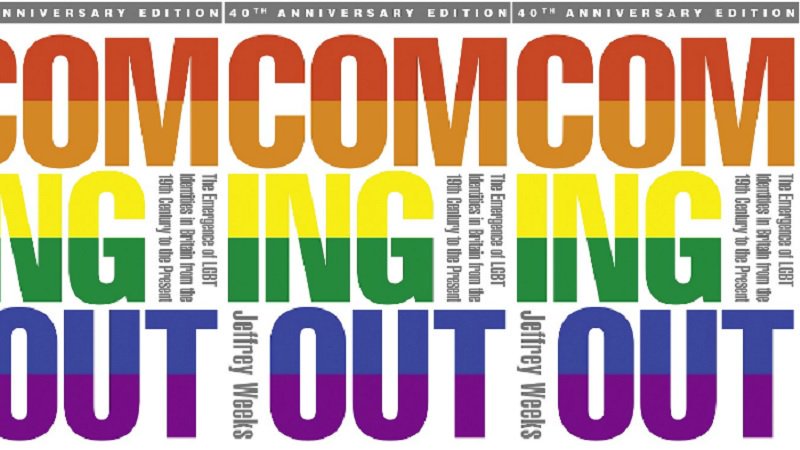The history of homosexuality in Britain is neither brief nor simple, so the prospect of reading and reviewing one of the most renowned accounts of the UK’s LGBT history was daunting to say the least. Having finally sat down with a minute to spare, it turns out that COMING OUT is one of the most interesting and immersive reads I’ve come across in a long time. The third edition of Jeffrey Weeks’ COMING OUT was released towards the end of 2016 and has once again brought this distinguished account to our attention. In a time where political decisions across the globe seem to be taking a terrifying backwards step, it seems more important than ever to be reminded of the struggles and successes of the LGBT-and-beyond communities in our country.
First released in 1977, COMING OUT has been recognised as a compelling yet concise overview of the struggle for equality in the UK spanning the last three centuries. Packed with personal tales of both oppression and liberation, heavy subject matter is handled carefully and delivered in an accessible tone. Although the focus of the book sways heavily towards the nineteenth and early twentieth centuries, Weeks has continued to update the ever-altering equality movement, with the second edition adding a focus on the AIDS crisis, and this third edition featuring a “forty years on” forward. Again highlighting the updated change in descriptions and terms, as well as a little recent history regarding social and legal changes within Britain, Weeks continues to highlight the ever-evolving battle for equality.
Although the updates in the third edition are contained only within the preamble of the text, it serves as rejuvenation, without taking away from the original content of the book. Weeks is truly a leading name in gay history literature, alongside being an activist and campaigner himself. I look forward to further editions and further writings to inform and to keep reminding the world to pay attention to the social injustices around them, and to continue to fight for a brighter and more equal future.
Review by Tasha Franek
